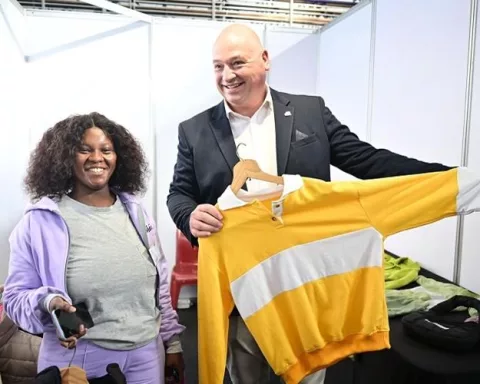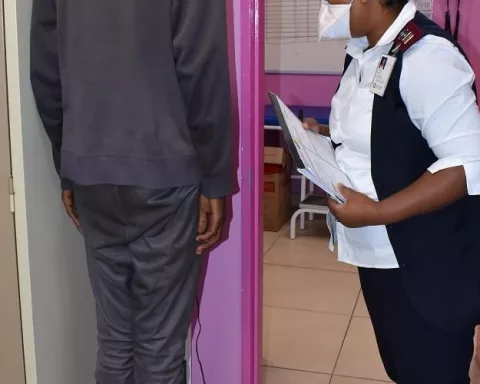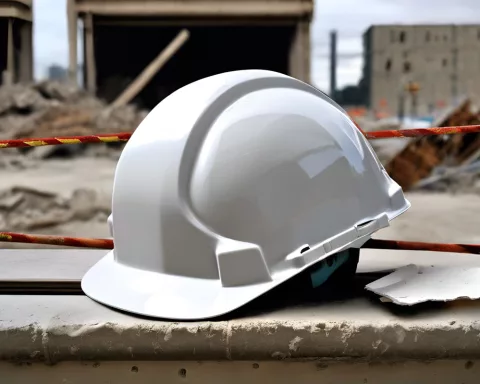South Africa and Lesotho have launched their first Bi-National Commission (BNC), which aims to strengthen the bond between the two nations and foster bilateral cooperation. The summit facilitated discussions about various aspects of collaboration, from trade and investment to infrastructure development and cultural exchanges. The BNC also offers an opportunity to improve economic integration within the Southern African Customs Union, the Southern African Development Community, and the African Continental Free Trade Area. Overall, the BNC marks a critical turning point in the partnership between South Africa and Lesotho, setting the stage for a new era of cooperation, progress, and prosperity.
Strengthening Bilateral Ties
The First Lesotho-South Africa Bi-National Commission (BNC) marks a notable milestone in reinforcing the relationship between the two nations. Guided by South African President Cyril Ramaphosa and Lesotho Prime Minister Matekane, the event facilitated candid dialogues about various aspects of bilateral collaboration.
Rooted in a shared history, the bond between South Africa and Lesotho is characterized by mutual support during times of hardship. The BNC endeavors to continue this legacy, nurturing a joint future centered on sustainable growth, prosperity, and security for both countries.
Delegates at the summit examined the current condition of bilateral cooperation across numerous fields. The comprehensive report, delivered by corresponding ministers, detailed the specifics of this collaboration. The inaugural BNC inspired the leaders with a renewed fervor for the responsibility of fortifying their economies and elevating their nations.
Enhancing Economic Integration
The BNC offers a chance to improve and solidify the execution of existing agreements. It also functions as a platform for the two nations to collaborate more closely in promoting broader economic integration. This encompasses cooperation within the Southern African Customs Union, the Southern African Development Community (SADC), and the African Continental Free Trade Area.
South Africa and Lesotho’s shared past has established the groundwork for their present unity and future collaboration. The BNC symbolizes a proactive effort to build upon this partnership, striving towards a mutual vision of a flourishing and secure future for their citizens.
Leaders at the summit engaged in constructive conversations, exchanging insights and experiences to gain a deeper understanding of one another’s viewpoints and aspirations. This process nurtured a sense of camaraderie between South Africa and Lesotho, laying the foundation for enhanced cooperation and mutual support in the coming years.
Fostering Regional Stability and Development
In addition to the BNC, both countries have actively participated in various regional initiatives aimed at promoting stability and development in the Southern African region. Their involvement in organizations such as the SADC and the African Continental Free Trade Area showcases a commitment to working collectively for the improvement of the entire continent.
This spirit of collaboration extends beyond politics and governance. South Africa and Lesotho have also participated in numerous cultural and educational exchanges, further solidifying their connection. These initiatives serve as a means of cultivating mutual understanding and respect, ultimately fostering an environment conducive to cooperation and progress.
The BNC has facilitated the identification of potential areas for collaboration, spanning from trade and investment to infrastructure development and sharing technical expertise. By leveraging the distinct strengths and resources of each nation, South Africa and Lesotho can work together to optimize their collective potential for growth and development.
As the inaugural BNC concluded, President Ramaphosa expressed his gratitude to Prime Minister Matekane and the entire delegation for their contributions to the event. The success of the summit, demonstrated by fruitful discussions and a rejuvenated sense of partnership, signifies a promising start to this new era of cooperation between South Africa and Lesotho.
The BNC signifies a critical turning point in the relationship between these two nations, providing a platform for ongoing collaboration and dialogue. By harnessing the power of unity and shared values, South Africa and Lesotho can work together to surmount challenges and seize opportunities for the benefit of their citizens and the region as a whole.
In summary, the First Lesotho-South Africa Bi-National Commission has set the stage for a new chapter in the partnership between these two neighboring nations. United by a shared history and driven by a common vision for a brighter future, South Africa and Lesotho stand ready to make significant strides toward realizing their joint aspirations for prosperity, stability, and progress.
1. What is the First Lesotho-South Africa Bi-National Commission?
The First Lesotho-South Africa Bi-National Commission (BNC) is a platform for dialogue and collaboration between South Africa and Lesotho aimed at strengthening their bilateral ties and improving economic integration within the Southern African region.
2. What is the purpose of the BNC?
The BNC aims to foster collaboration and cooperation between South Africa and Lesotho across various fields, from trade and investment to infrastructure development and cultural exchanges. It also provides an opportunity to improve economic integration within the Southern African Customs Union, the Southern African Development Community, and the African Continental Free Trade Area.
3. Who attended the summit?
The summit was attended by delegations from both South Africa and Lesotho, led by South African President Cyril Ramaphosa and Lesotho Prime Minister Matekane.
4. What was discussed at the summit?
Delegates at the summit discussed various aspects of collaboration, including trade and investment, infrastructure development, and cultural exchanges. They also examined the current condition of bilateral cooperation across numerous fields.
5. What is the significance of the BNC for South Africa and Lesotho?
The BNC represents a critical turning point in the partnership between South Africa and Lesotho, setting the stage for a new era of cooperation, progress, and prosperity. It provides a platform for ongoing collaboration and dialogue, and the opportunity to optimize the collective potential for growth and development.
6. How does the BNC aim to enhance economic integration?
The BNC aims to improve and solidify the execution of existing agreements and promote broader economic integration within the Southern African region. This encompasses cooperation within the Southern African Customs Union, the Southern African Development Community, and the African Continental Free Trade Area.
7. What regional initiatives have South Africa and Lesotho participated in?
Both countries have actively participated in various regional initiatives aimed at promoting stability and development in the Southern African region. This includes their involvement in organizations such as the SADC and the African Continental Free Trade Area.
8. What is the future outlook for the partnership between South Africa and Lesotho?
The BNC marks a notable milestone in reinforcing the relationship between South Africa and Lesotho and lays the foundation for enhanced cooperation and mutual support in the coming years. United by a shared history and driven by a common vision for a brighter future, the two nations stand ready to make significant strides toward realizing their joint aspirations for prosperity, stability, and progress.








